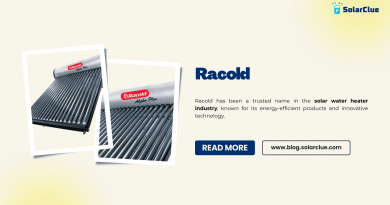Reliable Solar Batteries for Home Inverters
In today’s energy-conscious world, homeowners are increasingly turning to solar power to reduce their electricity bills and dependence on the grid. A crucial component of any solar power system is the solar battery, especially when paired with home inverters. These batteries store excess energy produced during the day for use at night or during power outages, making them indispensable for reliable energy access.
Table of Contents
- 1 Why You Need Reliable Solar Batteries for Home Inverters
- 2 Types of Solar Batteries Used in Home Inverters
- 3 Key Features to Look for in a Reliable Solar Battery
- 4 Best Solar Battery Brands for Home Inverters in 2025
- 5 How to Match the Right Battery with Your Home Inverter
- 6 Installation and Maintenance Tips
- 7 Environmental Benefits of Using Solar Batteries
- 8 Cost of Solar Batteries and ROI
- 9 Government Incentives and Subsidies
- 10 Common Mistakes to Avoid When Buying Solar Batteries
- 11 Future Trends in Solar Battery Technology
- 12 Where to Buy Reliable Solar Batteries
- 13 Conclusion
- 14 FAQs
Why You Need Reliable Solar Batteries for Home Inverters
Consistent Power Backup
A reliable solar battery ensures uninterrupted power supply even during grid failures. This is vital for homes relying on sensitive appliances like medical equipment, security systems, or refrigerators.
Maximizing Solar Power Utilization
Most homes generate excess solar energy during peak sunlight hours. A battery stores this surplus for later use, increasing the overall efficiency of your solar power system.
Reducing Electricity Bills
By using stored solar energy during peak tariff hours, homeowners can significantly cut down on their electricity expenses.
Types of Solar Batteries Used in Home Inverters
Lithium-Ion Batteries
Currently the most popular choice, lithium-ion solar batteries are known for their high efficiency, long lifespan, and compact size. They are ideal for residential use due to their low maintenance and faster charging capabilities.
Lead-Acid Batteries
These are the traditional option, available in flooded and sealed variants. While cheaper initially, they require regular maintenance and have a shorter lifespan compared to lithium-ion batteries.
Saltwater Batteries
A newer, eco-friendly alternative that uses saltwater electrolytes. These are non-toxic and recyclable but currently offer lower efficiency than other types.
Key Features to Look for in a Reliable Solar Battery

Battery Capacity and Power Rating
Capacity tells you how much energy a battery can store, while power rating indicates how much energy it can deliver at one time. A good balance ensures efficient performance.
Depth of Discharge (DoD)
A higher DoD allows more of the battery’s capacity to be used without reducing its lifespan. Look for batteries with a DoD of at least 80%.
Round-Trip Efficiency
This is the percentage of energy that can be retrieved from the battery compared to what was put in. Aim for at least 85% round-trip efficiency.
Battery Lifespan and Warranty
Choose batteries with a lifespan of 10 years or more and a solid manufacturer’s warranty to ensure long-term reliability.
Best Solar Battery Brands for Home Inverters in 2025
Tesla Powerwall 2
With a sleek design and impressive 13.5 kWh capacity, Tesla’s offering is perfect for tech-savvy homeowners.
LG Chem RESU
Compact and efficient, LG’s batteries are a trusted name in the solar industry.
Luminous Solar Batteries
Widely available in India, these are cost-effective and compatible with most home inverters.
Exide Solar Tubular Batteries
A robust solution for high-demand households with excellent deep discharge recovery.
How to Match the Right Battery with Your Home Inverter
Understand Your Power Needs
Calculate your daily energy consumption and peak load requirements to determine battery size and type.
Check Compatibility
Ensure your inverter supports the voltage and current ratings of the battery.
Consider Future Expansion
If you plan to expand your solar power system, opt for modular batteries that can be upgraded easily.
Installation and Maintenance Tips
Professional Installation
Always hire certified technicians for installation to ensure safety and warranty compliance.
Regular Maintenance
For lead-acid batteries, check water levels and clean terminals regularly. Lithium-ion batteries require minimal upkeep.
Monitoring System
Install a monitoring system to track performance and detect issues early.
Environmental Benefits of Using Solar Batteries
Reducing Carbon Footprint
Using stored solar power reduces reliance on fossil fuels, significantly lowering greenhouse gas emissions.
Energy Independence
With reliable solar batteries, households can function off-grid or during prolonged power outages.
Supporting Sustainable Energy
Every household that invests in a solar power system contributes to a cleaner, more sustainable planet.
Cost of Solar Batteries and ROI
Initial Investment
High-quality solar batteries can cost between ₹30,000 to ₹1,50,000 depending on type and capacity.
Long-Term Savings
Over time, the savings on electricity bills and increased efficiency of your solar power system make the investment worthwhile.
Government Incentives and Subsidies
Many governments, including India’s, offer subsidies on solar power systems and batteries. Check local policies for eligibility.
Common Mistakes to Avoid When Buying Solar Batteries
- Ignoring compatibility with inverters
- Choosing capacity too low for your needs
- Overlooking warranty and support services
Future Trends in Solar Battery Technology
- AI-powered energy management
- Second-life EV batteries repurposed for home use
- Advanced solid-state batteries with higher energy density
Where to Buy Reliable Solar Batteries
Looking for reliable products and expert guidance? Explore trusted options at solarclue.com and insightful resources at blog.solarclue.com.
Conclusion
Investing in reliable solar batteries for home inverters is no longer optional—it’s essential for maximizing your solar power system‘s potential and ensuring energy independence. With multiple battery types, features, and brands available, choosing the right one can seem overwhelming. However, with the right guidance and resources, you can make an informed decision that pays off in the long run.
For more updates and trusted products, don’t miss out on our full collection at solarclue.com—your partner in smart solar living!
FAQs
1. What is the average lifespan of a solar battery?
Most solar batteries last between 5 to 15 years, with lithium-ion options typically offering the longest life.
2. Can I use any battery with my existing inverter?
No. Always ensure the battery voltage and capacity are compatible with your inverter specifications.
3. Are solar batteries safe for indoor use?
Yes, especially lithium-ion batteries which are designed with multiple safety features. However, always ensure proper ventilation and installation.
4. Do solar batteries work during a power outage?
Yes, if paired correctly with an inverter and solar panels, they can provide backup during outages.
5. Is it worth investing in solar batteries in 2025?
Absolutely. With rising electricity costs and government incentives, solar battery investment offers both financial and environmental benefits.




